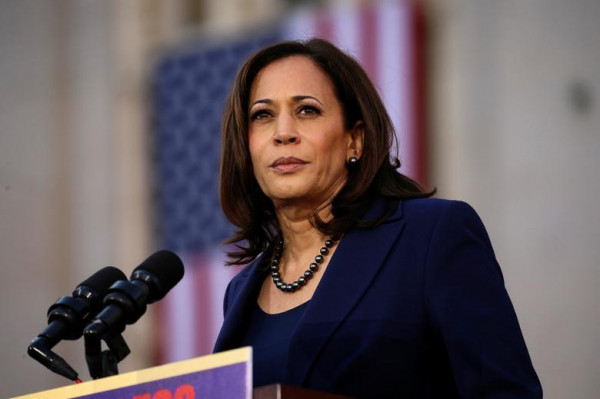Kamala Harris Confronts Identity Politics in VP Selection: Navigating Complex Narratives

In the complex world of American politics, the intersection of identity and merit often becomes a focal point of discussion and debate. This is particularly evident in the case of Vice President Kamala Harris, the first woman, first Black American, and first person of South Asian descent to hold this high office. A recent interaction during an interview sheds light on the nuanced and sometimes contentious dialogue surrounding her selection as Joe Biden's running mate.
During an interview with Astead Herndon for the New York Times' "Run Up" podcast, Vice President Harris was confronted with a question that cuts to the heart of this issue: Did it matter that there was a narrative suggesting President Biden needed to choose a Black woman as his vice president? This question implicitly probes the role her identity played in her selection.
Harris, seemingly puzzled by the question, responded with a laugh, indicating her bewilderment at the query's premise. "It happened. I don’t think, I honestly don’t understand your question. Has it lingered?" she remarked. Her response highlights a desire to move beyond the narrative of identity politics and focus on the responsibilities and qualifications that define her role as Vice President.
The question posed to Harris is reflective of a broader conversation in American politics about the role of identity in the selection of leaders. While some view the emphasis on identity as a necessary step towards greater diversity and representation, others argue that it can overshadow an individual's qualifications and capabilities. Harris's selection as Vice President was historic not only for her identity but also for her extensive experience and qualifications, which include serving as a U.S. Senator and Attorney General of California.
The interaction between Harris and Herndon underscores how public figures, especially those breaking new ground in terms of representation, often have to navigate the dual narratives of identity and merit. For Harris, her groundbreaking role comes with the added scrutiny of how her identity intersects with her political career. This scrutiny is not just about her selection as Vice President but also about how she navigates her role in an administration facing numerous challenges, from the pandemic to issues of racial justice and economic inequality.
Vice President Kamala Harris's experience highlights the complex interplay between identity and politics in America. As the nation continues to grapple with issues of diversity, representation, and equality, the narrative surrounding leaders like Harris will likely remain a point of discussion and debate. It is a reminder that in the realm of politics, identity and merit are often intertwined, shaping not only how leaders are chosen but also how they are perceived and judged by the public.














